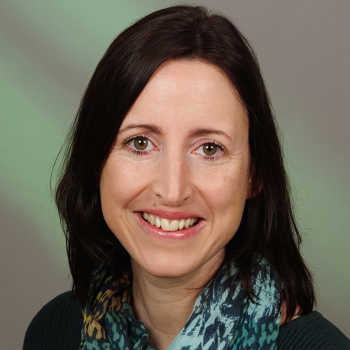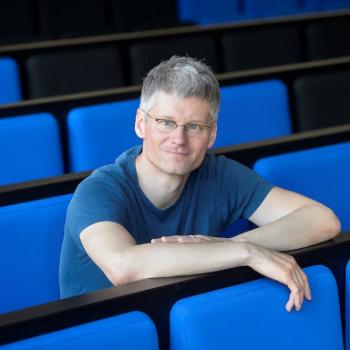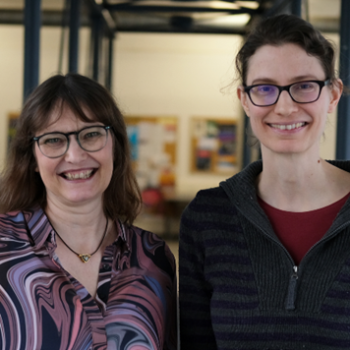Bachelor’s Degree Programs
Saarland University offers various undergraduate study programs in computer science. From computer graphics and artificial intelligence to software engineering and IT security, the wide range of research topics and close cooperation between the university and research institutes is also reflected in teaching. Computer science students benefit from the wide range of study programmes, courses and the quality of the professors. They teach with enthusiasm and always have their finger on the pulse of the times through their research. Students also appreciate the very good supervision ratio. In the nationwide CHE university ranking, they regularly give Saarbrücken Computer Science top marks.
Are you looking for Bachelor’s degree programs that are taught entirely in English?
Then our new, international degree programs are made for you.
Computer Science
Studying computer science is like glimpsing into the engine room of our era, providing insights into the workings of the modern world. This degree program offers a comprehensive understanding of all facets of computer science. From the get-go, it establishes a solid foundational knowledge, equipping students with the necessary skill set to navigate diverse technologies in a swiftly changing industry. The primarily English-taught curriculum emphasizes theoretical aspects, and students also have ample opportunities to develop practical skills through a large range of courses, projects, and exercises.
The computer science bachelor’s degree program does not have enrollment restrictions. Enrollment of students from Germany takes place directly at the Saarland University Office of Student Affairs. The courses of this study program are given in German for the first two semesters. From the third semester onwards, they are held entirely in English.
The six-semester bachelor’s program in computer science (Bachelor of Science) includes:
- – Lectures with exercises on the following fundamental topics of computer science: Programming 1 and 2, System Architecture, Information Systems, Theoretical Computer Science, Concurrent Programming, Principles of Algorithms and Datastructures
- – Lectures with exercises on the mathematical foundations
- – Additional elective lectures on computer science
- – A software practicum in which a complex software product is created as part of a team
- – A proseminar and a seminar in which research results are presented and discussed
- – Courses for a minor such as Mathematics, Computer Linguistics or Systems Engineering
- – A bachelor’s thesis
With the bachelor’s degree, you will be able to earn your first professional qualification after six semesters, which provides opportunities for responsible and challenging work in the industry.
Answers to the most frequently asked questions (FAQ) on the bachelor’s degree in computer science can be found in our short Study Guide. The structure of the study program is available in the study regulations and the formal requirements in the examination regulations. You can the content of the individual courses of the bachelor’s degree in the course descriptions.
The course of study is divided into one-semester courses: lectures, exercises, practica and seminars. Each of the courses has a weight specifed in credit points. These credits describe the actual workload required for a course; a total of 30 credits must be completed per semester. Credit points are standardized across Europe within the framework of the European Credit Transfer System, facilitating the recognition and transfer of study and examination achievements at foreign universities, for example for a semester abroad. The bachelor’s program includes 180 credits. Every course concludes with a performance assessment – usually a written exam. These performance checks accompany the course of study throughout and when successfully passed, make up the qualifications for the bachelor’s degree. The overall final grade for your degree is the weighted average of these graded examination results. A successful course of study requires not only abstraction skills or mathematical and technical understanding. You also need social skills for project teamwork and the presentation of your results.
International Bachelor Computer Science (English)
The international Computer Science degree program is taught entirely in English. With this, Saarland University sharpens its international profile and prepares students even better for a globalized job market. The degree program begins with a two-year phase in which the foundations of computer science are taught. This includes a compulsory part with mathematics, programming, algorithms and data structures, theoretical computer science, machine learning and system architecture. All courses also include practical exercises and projects.
International Bachelor Cybersecurity (English)
Complementing the German Bachelor Course in Cybersecurity, this program is taught in English from the very first lecture targeting both an international audience and German students with a good command of English. This program will prepare students to continue with our English Master Courses Cybersecurity (MSc) and Entrepreneurial Cybersecurity (M. Eng) as well as an international career in research and industry. Students acquire scientific foundations in Mathematics and Computer Science completed by various courses to specialize in a broad range of Cybersecurity topics. A close cooperation with CISPA Helmholtz Center for Information Security – #1 Research institution for Cybersecurity world-wide – and other excellent Computer Science institutes on site, ensures high scientific quality and fuels a broad selection of topics which build on CISPA’s cutting-edge research.
Bioinformatics
Bioinformaticians operate at the intersection of computer science and life sciences. They develop algorithms and software to simulate biochemical processes and analyze molecular biology and genetic data. The degree program lays a foundational scientific expertise in bioinformatics, blending core knowledge from both computer science and the life sciences. Students are trained to grasp bioinformatics challenges and their applications, model them mathematically, and employ scientific methodologies and insights from computer science in addressing them.
The computer science bachelor’s degree program does not have enrollment restrictions. Enrollment of students from Germany takes place directly at the Saarland University Office of Student Affairs.
Bioinformatics develops algorithms and software that make it possible to simulate biochemical processes and analyze molecular biological data. The publication of the sequence of the human genome in February 2001 is considered a major milestone in the history of research; the resonance in the media was correspondingly great. Bioinformatics had the largest share in this scientific result. However, far greater challenges lie ahead of us: the genes must be found and examined for their function in order to finally understand the interaction of the genes and, on this basis, to enable the development of new drugs. These tasks are many times more complex than assembling the DNA sequence. Bioinformatics makes crucial contributions to solving these challenges. Bioinformatics also contributes significantly to the development of new drugs: Large drug databases are searched (screening, docking) for suitable candidates which are effective, have as few unwanted side effects as possible and are also able to reach the target site in the body (overcoming biological barriers). The optimization of known therapies is supported by methods of bioinformatics: By comparing entire genomes of different individuals, differences (SNPs) can be found, which allow an individualization of therapies.
The standard period of study is six semesters of full-time study, or up to nine semesters part-time. Upon request, part of the study program can be completed part-time – up to a maximum of eight semesters. The semester during which the bachelor’s thesis is prepared must be completed full-time.
The accredited bachelor’s program in bioinformatics imparts a basic scientific qualification in bioinformatics as well as foundational knowledge of life sciences and computer science. Graduates of this program should be able to understand problems and questions of bioinformatics and their applications, to mathematically model them, and to apply scientific methods and insights of computer science to these problems.
The academic degree “Bachelor of Science (B.Sc.)” is awarded; it can be acquired in two different specializations:
1. “Methodological Bioinformatics” (CMB – Computational Molecular Biology) or
2. “Applied Bioinformatics” (BI – Bioinformatics).
66123 Saarbrücken

Computational Linguistics
Computational linguistics studies the machine processing of human language. It integrates principles and techniques from computer science, linguistics, and cognitive science. Through its models, it explores the mechanics of language, the relationship between language, thought, and communication, and how computers can understand language. In today’s information technology landscape, computational linguistics plays a significant role, with applications such as search engines, machine translation systems, and dialogue systems.
The bachelor’s degree program for computational linguistics is currently not subject to any admission restrictions. At present, it is possible to start the program only in the winter semester. The language of instruction is predominantly German. Some individual courses are taught in English.
The “Computational Linguistics” bachelor’s degree is an exciting program at the interface of linguistics and computer science. Computational linguistics explores the processing of human language. Its models provide answers to the question of how language works; how language, thinking and communication are related; and how language-understanding systems can be realized on computers. Computational linguistics has become an indispensable part of modern information technology: Search engines, machine translation systems and voice dialog systems are just a few of its numerous fields of application.
The bachelor’s degree in computational linguistics includes examinations totaling 180 credit points (CP) from the following areas: – Mathematical foundations (25 CP) – Linguistic foundations (24 CP) – Computational linguistics (27 CP) – Computational linguistics seminars and software projects (31 CP) – Supplementary subject or courses on the structure of a foreign language (24 CP). Possible supplementary subjects are computer science, cognitive psychology, phonetics, and modern German linguistics. As a language, a non-Indo-European language such as Chinese or Japanese should be selected. – For electives (30 CP), lectures on computer science, or seminars and lectures on computational linguistics, can be counted toward the requirement. By application, a work placement (8 CP) can be completed. The study program concludes after 6 semesters with a bachelor’s seminar (7 CP) and thesis (12 CP).
66123 Saarbrücken

Cybersicherheit
The degree program covers the entirety of cybersecurity, an area of heightened social and political relevance. From the first semester, foundational courses such as “Foundations of Cybersecurity”, “Elements of Machine Learning”, and “Cryptography” are introduced to provide a comprehensive understanding. The insights offered in IT security are complemented by contents from core computer science and fundamental mathematics. The program also emphasizes a research-focused approach, with its content mirroring the latest developments in cybersecurity research. Throughout the program, a variety of seminars and specialized modules enable students to deepen their expertise and refine their academic profile.
The cybersecurity bachelor’s degree program does not have enrollment restrictions. Enrollment of students from Germany takes place directly at the Saarland University Office of Student Affairs.
The courses of this study program are partly in English starting from the first semester.
The six-semester bachelor’s program in cybersecurity (Bachelor of Science) includes:
- – Lectures with exercises on the following fundamental topics of computer science and cybersecurity: Foundations of Cybersecurity 1 and 2, Programming 1 and 2, System Architecture, Cryptography, Security, Information Systems, Theoretical Computer Science, Concurrent Programming, Principles of Algorithms and Datastructures
- – Lectures with exercises on the mathematical foundations of analysis and linear algebra
- – Additional elective lectures on cybersecurity
- – A software practicum in which you create a complex software product as part of a team
- – A proseminar and a seminar in which you present and discuss research results
- – A bachelor’s thesis
All lectures are designed to bridge the gap between theory and practice. With the bachelor’s degree, you will be able to earn your first professional qualification after six semesters; it is not only scientifically oriented, but also prepares you for practical work in industry and enterprise.
Answers to the most frequently asked questions (FAQ) on the bachelor’s degree in cybersecurity can be found in our short Study Guide. The legal framework for the study program is available for download in the bachelor’s degree regulations (pdf). You can also read about each of the individual courses of the bachelor’s degree in the course descriptions (pdf).
The study program is divided into one-semester courses: lectures, exercises, practica and seminars. Each of the courses has a weight specifed in credit points. These credits describe the actual workload required for a course; a total of 30 credits must be completed per semester. Credit points are standardized across Europe within the framework of the European Credit Transfer System, facilitating the recognition and transfer of study and examination achievements at foreign universities, for example for a semester abroad. The bachelor’s program includes 180 credits (about 94 weekly semester hours and a final thesis). Up to 6 non-graded points can be brought in from language courses.
Every course concludes with a performance assessment – usually a written exam. These performance checks accompany the course of study throughout and when successfully passed, make up the qualifications for the bachelor’s degree. The overall final grade for your degree is the weighted average of these graded examination results. A successful course of study requires not only abstraction skills or mathematical and technical understanding. You also need social skills for project teamwork and the presentation of your results.
Data Science and Artificial Intelligence
This degree program explores the processing of complex data using automated artificial intelligence methods to identify underlying trends and facts. The curriculum covers key areas essential for data analysis and automation, such as statistics, machine learning, and big data engineering. Furthermore, foundational topics commonly found in computer science degrees, including mathematics, programming, and theoretical computer science, are integrated into the program. Early in their studies, students address real-world problems.
The bachelor’s degree program does not have enrollment restrictions. Enrollment of students from Germany takes place directly via the Saarland University Office of Student Affairs. The courses of this study program are given in German for the first two semesters. From the third semester onwards, they are held entirely in English.
The six-semester bachelor’s program in Data Science and Artificial Intelligence (Bachelor of Science) includes:
- – Lectures with exercises on the following fundamental topics of computer science: Programming 1 and 2, Theoretical Computer Science, Principles of Algorithms and Datastructures, and Big Data Engineering
- – Lectures with exercises on the mathematical foundations
- – Specified lectures in Data Science and Artificial Intelligence (DSAI): Elements of Data Science and Artificial Intelligence, Statistics Lab and Elements of Machine Learning
- – Additional lectures on the level of core and advanced lectures in DSAI
- – A project seminar
- – A seminar in DSAI in which research results are presented and discussed
- – Courses for a minar such as Computer Linguistics, Physics, Medicine, etc (a list can be found in the study regulations)
- – A bachelor’s thesis with bachelor seminar
With the bachelor’s degree, you will be able to earn your first professional qualification after six semesters, which provides opportunities for responsible and challenging work in the industry.
Answers to the most frequently asked questions (FAQ) on the bachelor’s degree in computer science can be found in our short Study Guide. The structure of the study program is available in the study regulations and the formal requirements in the examination regulations. You can the content of the individual courses of the bachelor’s degree in the course descriptions.
The course of study is divided into one-semester courses: lectures, exercises, practica and seminars. Each of the courses has a weight specifed in credit points. These credits describe the actual workload required for a course; a total of 30 credits must be completed per semester. Credit points are standardized across Europe within the framework of the European Credit Transfer System, facilitating the recognition and transfer of study and examination achievements at foreign universities, for example for a semester abroad. The bachelor’s program includes 180 credits. Every course concludes with a performance assessment – usually a written exam. These performance checks accompany the course of study throughout and when successfully passed, make up the qualifications for the bachelor’s degree. The overall final grade for your degree is the weighted average of these graded examination results. A successful course of study requires not only abstraction skills or mathematical and technical understanding. You also need social skills for project teamwork and the presentation of your results.
66123 Saarbrücken

Mathematics and Computer Science
The Bachelor’s degree program in Mathematics and Computer Science provides a balanced foundation in both fields. For mathematics, this encompasses topics such as analysis, linear algebra, numerics, and stochastics. In computer science, students learn core concepts of programming, algorithms, data structures, and fundamental theoretical computer science. This program equips students with the foundational knowledge necessary to further specialize in any area within both disciplines.
The study program Mathematics and Computer Science is not expected to be subject to any admission restrictions. Generally it is possible to start the program only in the winter semester.
How can cars drive themselves independently? How can computers become better than doctors at detecting tumors on X-ray images? How can it be proved that an algorithm is correct? Many modern issues require well-founded knowledge of both mathematics and computer science. Moreover, mathematics is the basis for computer science, while informatics opens exciting fields of activity for mathematics. Saarbrücken computer science is known for its emphasis on mathematical fundamentals, and the Department of Mathematics has renowned research groups that solve problems using computers. For the first time in Germany, the integrated bachelor’s program in mathematics and computer science has created the opportunity to study the foundations of both subjects on an equal basis.
In six semesters, the Bachelor’s program Mathematics and Computer Science teaches the fundamentals of both mathematics and computer science. On the mathematical side this includes analysis, linear algebra, numerics and stochastics. In the field of computer science, in particular the basics of programming, algorithms and data structures as well as theoretical computer science are imparted. This knowledge allows the students to delve into any specialty in both subjects.
66123 Saarbrücken

Media Informatics
Media informatics merges traditional computer science with the artistic facets of media design and insights from perceptual psychology. The program provides a deep understanding of digital media principles, along with the intricacies of software design, programming, and implementation. Besides computer science coursework, students participate in seminars and lectures at the Saarbrücken University of Fine Arts and the Saarland University’s Department of Psychology.
The computer science bachelor’s degree program does not have enrollment restrictions. Enrollment of students from Germany takes place directly at the Saarland University Office of Student Affairs.
New mobile devices, which provide high computing power in a small space, open up a wide range of communication methods. In order to use them creatively and to make them as simple as possible for the consumer, knowledge of media informatics is brought to bear. Saarland University is offering a new course of study in this area from the winter semester onwards. It combines content from classical computer science studies with the artistic aspects of media design and findings from the psychology of perception. Students will also attend courses at the Hochschule der Bildenden Künste Saar (the university of art and design located in Saarbrücken) and the Saarland University Department of Psychology. “On the one hand, media informatics specialists must master the theoretical and practical fundamentals of computer science. They should also deal with the design and social issues of digital media, and be interested in how communication between humans and machines can be improved,” says Antonio Krüger. He is a Saarland University professor with a focus on artificial intelligence in commerce, as well as being a researcher at the German Research Center for Artificial Intelligence (DFKI). Together with the Globus chain, the computer scientist is researching supermarkets of the future and examining how new communication technologies will be able to simplify daily shopping within a few years. “The findings from this research project can be applied to many other everyday scenarios. Our research not only serves as an illustrative example for media informatics students, but also gives them the opportunity to actively participate in current, practical research,” explains Krüger. As potential employers in the media informatics field, he names multimedia companies, advertising agencies, or software development and telecommunications firms. In addition, media informatics expertise is required by broadcasters and publishers as well as in corporate internal training. “The media informatics study program will include a high degree of practical experience with project work in small teams. In this way, the students will be able to gain an understanding of the professional handling of multimedia technologies, for example in audio and image processing,” says the computer science professor. In addition, the students will also develop skills for critical analysis of the social impact of digital media. Already during their studies, media informatics students in Saarbrücken can participate in a wide range of research projects. The Department of Computer Science at the university has about 30 professors who investigate a wide range of topics, from computer graphics to software engineering to voice technology. The Cluster of Excellence “Multimodal Computing and Interaction” comprises a further 20 young research groups. In addition, the Max Planck Institutes for Computer Science and Software Systems as well as the German Research Center for Artificial Intelligence are located on the university campus.
In the six-semester study program leading to the Bachelor of Science (B.Sc.) degree, students learn about digital information processing and the digital communication techniques it requires. They develop an understanding of the principles of digital media and learn how to design, program and implement software. The content of the course includes foundational courses in computer science, such as software development, theoretical computer science and databases. The necessary knowledge of mathematical laws is also provided through the mathematics courses for computer scientists. In addition, there are courses specifically for media informaticists. The students furthermore attend media psychology courses (in the Saarland University Department of Psychology) as well as Media Art & Design courses at the Hochschule der Bildenden Künste in Saarbrücken. The main focuses of the Media Informatics program are: – Computer science (about 42%) – Digital media (about 30%) – Internships and projects (about 11%) – Mathematics (about 10%) – Media psychology (about 7%)

Business Informatics
Business informatics investigates and shapes the digitalization processes within business, administration, and society. It assesses the capabilities of emerging information technologies and derives innovative IT and organizational strategies. The field encompasses the development and utilization of information and communication systems in businesses, facilitating digital transformation. As an interdisciplinary domain, it bridges the gap between economics and computer science.
The Business Information Systems degree program is currently not subject to any admission restrictions. It is usually possible to start the program in the winter or summer semester, but starting in the winter is recommended. Enrollment (matriculation) for a first semester takes place online via the SIM portals of Saarland University without prior application.
As an interdisciplinary subject, business informatics is the interface between business administration and computer science. Its tasks include solving business problems by developing and applying suitable information and communication solutions, as well as analyzing new information technologies with regard to their application potential for operational practice. Here the importance of pure hardware and programming knowledge meets that of capabilities for designing IT-based solutions and cooperative implementation in business organizations. Along with the basics of information processing, the study of business informatics therefore imparts business-relevant analytical thinking skills.
The practice-oriented study program offers the opportunity to acquire a professionally qualifying university degree (Bachelor of Science, B.Sc.) after six semesters. The program teaches the basic scientific content and methods of the disciplines of business information systems, computer science and business administration. With the completion of the bachelor’s degree, the ability to apply the imparted knowledge to the solution of practical tasks of business informatics in a professional environment is acquired. Due to its interdisciplinary character, Business Information Systems offers a wide range of specialization possibilities in studies and profession.
Further information about the study program can be found on the website of the Institute for Information Systems (IWi) https://www.uni-saarland.de/en/chair/loos.html
and the Economics Examination Office https://www.uni-saarland.de/fakultaet-hw/vipa.html
The course units consist of compulsory courses as well as elective areas, which are offered in the form of modules. Modules are self-contained, thematically and temporally ordered course groupings. In addition, modules are offered that promote independent and team-oriented work, e.g. case studies, the proseminar and seminar, the bachelor thesis and especially the project work, in which an IT project is realized under the guidance of a student team.
The curriculum of the three-year bachelor’s program involves a total of 180 CP and is divided into the following areas:
– Quantitative Methods (30 CP)
– Business Informatics (30 CP)
– Economics (36 CP)
– Computer Science (39 CP)
– General and interdisciplinary qualifications (12 CP)
– Specialized topics (33 CP)
The breakdown of each area into its modules and CP can be found in the current program overview.



